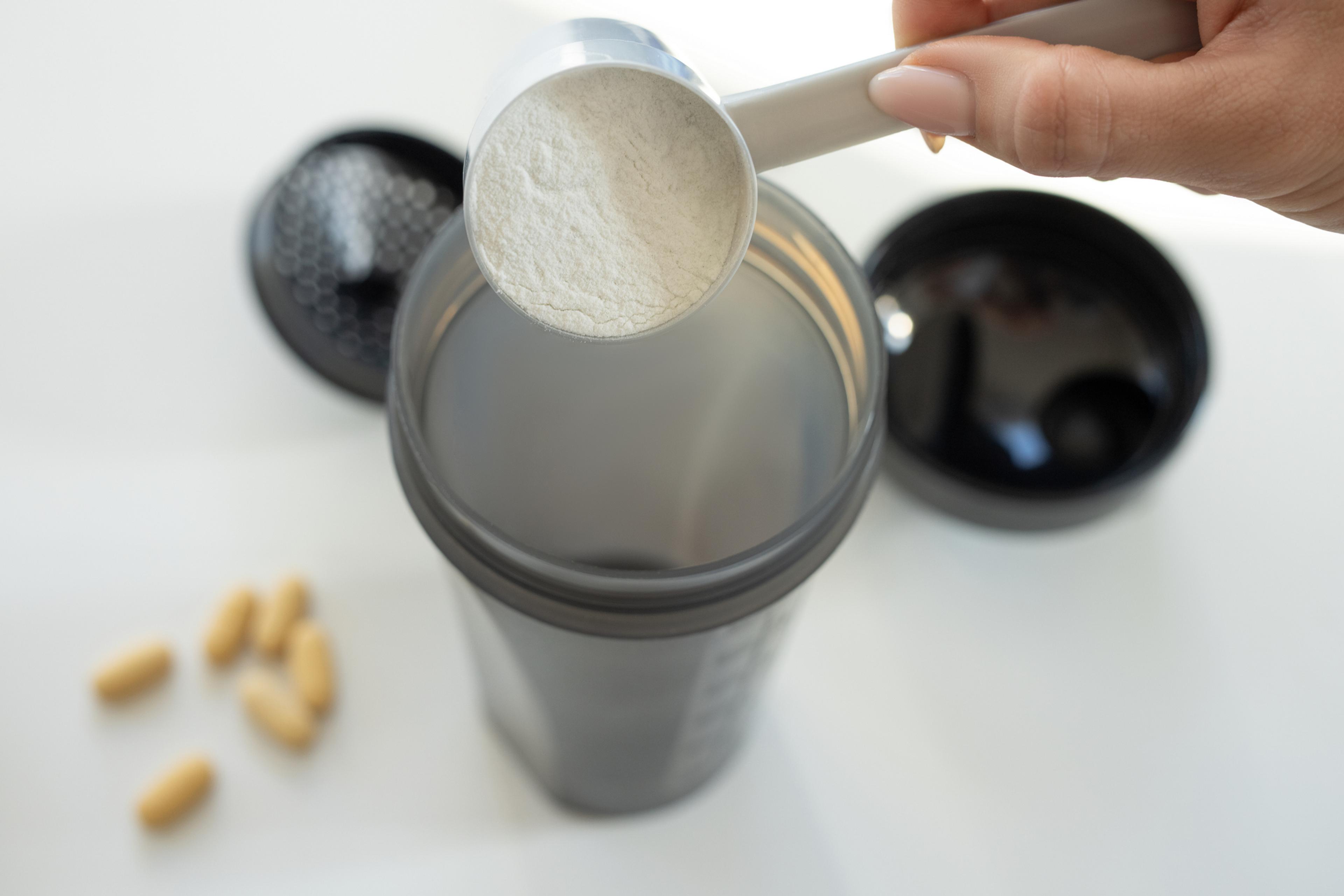#WellnessWeds: Worried About Diet Deprivation? Consider This Approach Instead
Shannon Paul
| 4 min read

For this week’s #WellnessWeds post we wanted to ask you what you think about fitness expert, Jackie Warner‘s add to lose approach to weight loss. With this method, Warner recommends beginning your diet by eating specific nutrient-rich foods each day for the first 14 days of your weight-loss plan. She says people tend to worry too much about deprivation when they should be getting excited about nutrition. Is it really possible to get excited about nutrition?
In her book, This is Why You’re Fat (And How to Get Thin Forever), Warner writes about having her fitness clients add specific healthy foods to their diet for the first two weeks without restrictions. This means that as long as you eat the specific items she recommends each day, everything else you may choose to eat throughout the day is completely and totally your decision, whether it’s fried chicken, birthday cake, pizza or steamed kale, the choice belongs to you. While she admits that this approach “sounds crazy,” she promises a method to her madness.
Warner’s Approach Says Nutrient-Rich Foods Curb Cravings for Sugar and Fat
I’ve had my own struggles with weight over the years and I’m guilty of making food choices out of convenience rather than nutritional value. In my experience, many low-calorie pre-packaged snacks make it easy to count calories, but leave me feeling less than satisfied; periods of good behavior (staying within my recommended calorie allotment) are often followed by periods of bad behavior (throwing caution to the wind). I can’t help wondering whether Warner’s advice makes a lot of sense… If I make sure I have the highest levels of nutrients my body needs, will I feel more satisfied and stay on track with my weight-loss plan for the long haul? Will I find it easier to stay within my recommended calories?
Here are the foods Warner recommends adding to your diet for the first two weeks:
- Eggs (2 daily) – According to Warner, eggs are a great fat-burning food because they supply a nutrient called lecithin, which helps break down fat in the body. Eggs on Warner’s plan can be hard-boiled, poached or scrambled, but without added fat.
- Oatmeal (1 cup daily) – Oatmeal keeps insulin levels low and steady to prevent weight gain, according to Warner in addition to supplying fiber and B-vitamins, which have been found to reduce stress and promote energy.
- “Hormone-balancing, detox vegetables” (2-3 cups daily) – The vegetables Warner lists under this heading include artichokes, broccoli, brussels sprouts, cabbage, carrots, cauliflower, celery, collard greens, cucumbers, eggplant, endive, garlic, green beans, kale, lettuce (all varieties), mushrooms, mustard greens, onions, parsley, peppers (all varieties), radishes, scallions, spinach, summer squash, Swiss chard, tomatoes, turnip greens, watercress, yellow wax beans, and zucchini.
- Fresh fruit (2 servings or 2 whole fruits) – Apples, apricots, bananas (underripe), berries (all varieties), cherries, citrus fruits (all varieties), kiwi, guava, mango, melon (all varieties), papaya, pear, peach, pineapple plum, pomegranate, and watermelon are all recommended as good options by Warner.
- Water and lemon juice (lots of it) – Warner says water with lemon juice helps activate the burning of stored fat in your body because it is a “bile thinner” that helps bile in your liver process fat more efficiently. She also says this combination helps prevent cravings throughout the day.
- Whey protein shake (8 ounce serving daily) – Whey has the highest levels of branched-chain amino acids of any protein source, according to Warner, which is important because of its role in muscle development.
- Herbal and green teas – This is one of Warner’s tricks for combating late-night cravings. Green tea increases dopamine and serotonin in the brain, chemicals she says helps regulate appetite, mood, energy, and cravings. Mixing herbal tea with green tea helps give the drink a fruity flavor.
Add to Lose is Only the Beginning
Warner’s entire method doesn’t stop with this approach — remember, she’s only recommending this plan for the first two weeks. After that period she recommends what is basically known as a clean eating plan that includes two “cheat meals” each week. Cheat meals can include anything you want as long as it is less than 1,500 calories total. Her plan also includes a fitness component with daily workouts.
What Works for You?
Does add to lose seem like a good strategy for getting started on your healthier lifestyle, or do you find the lack of restriction too tempting? Do you find it difficult to focus on good nutrition when you’re counting calories? Let us know in the comments below, or post your thoughts on Twitter with the #WellnessWeds hashtag.
Photo Credit: ‘Lil aka Kristel Jax





